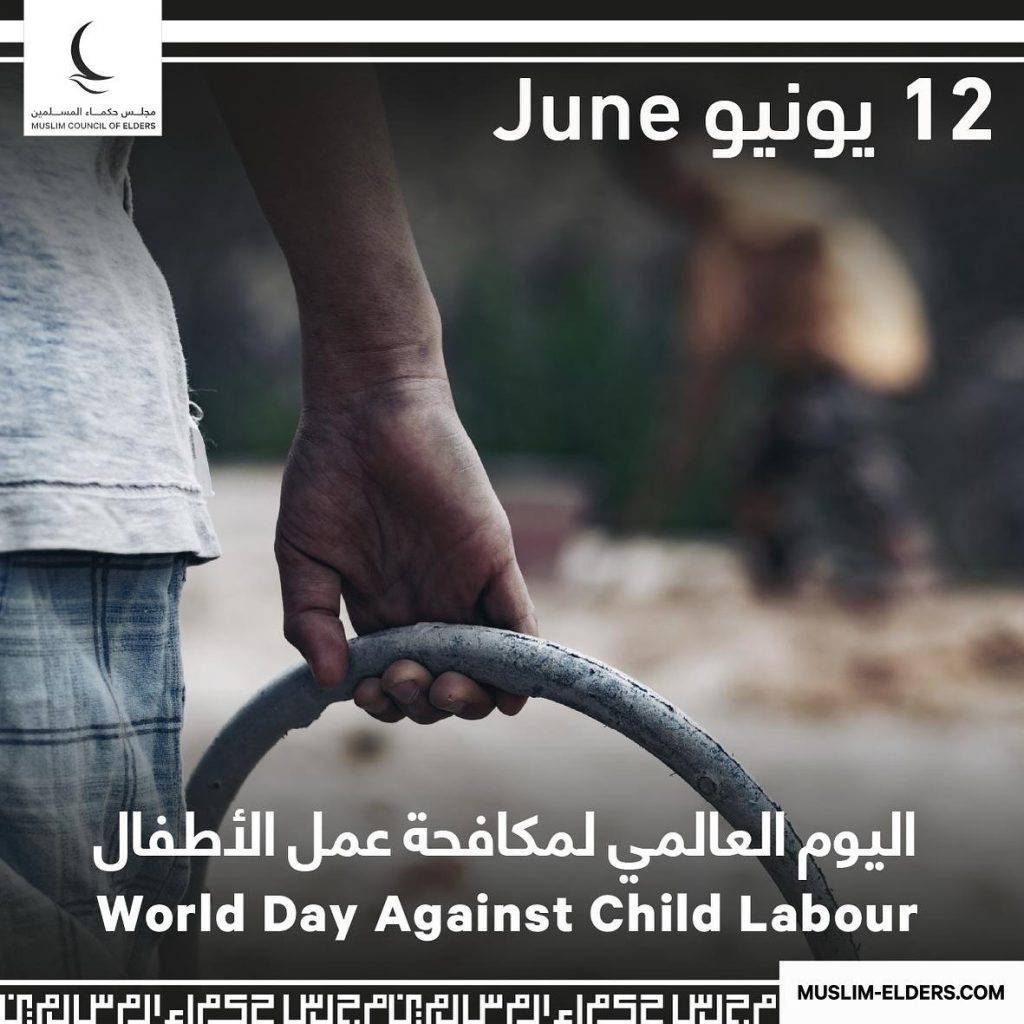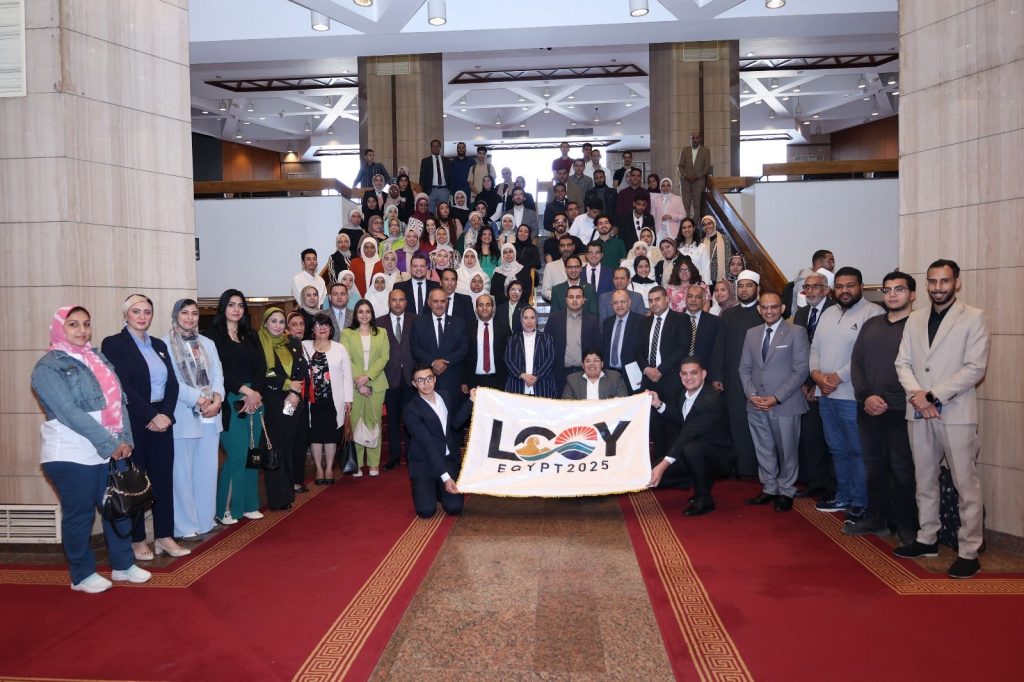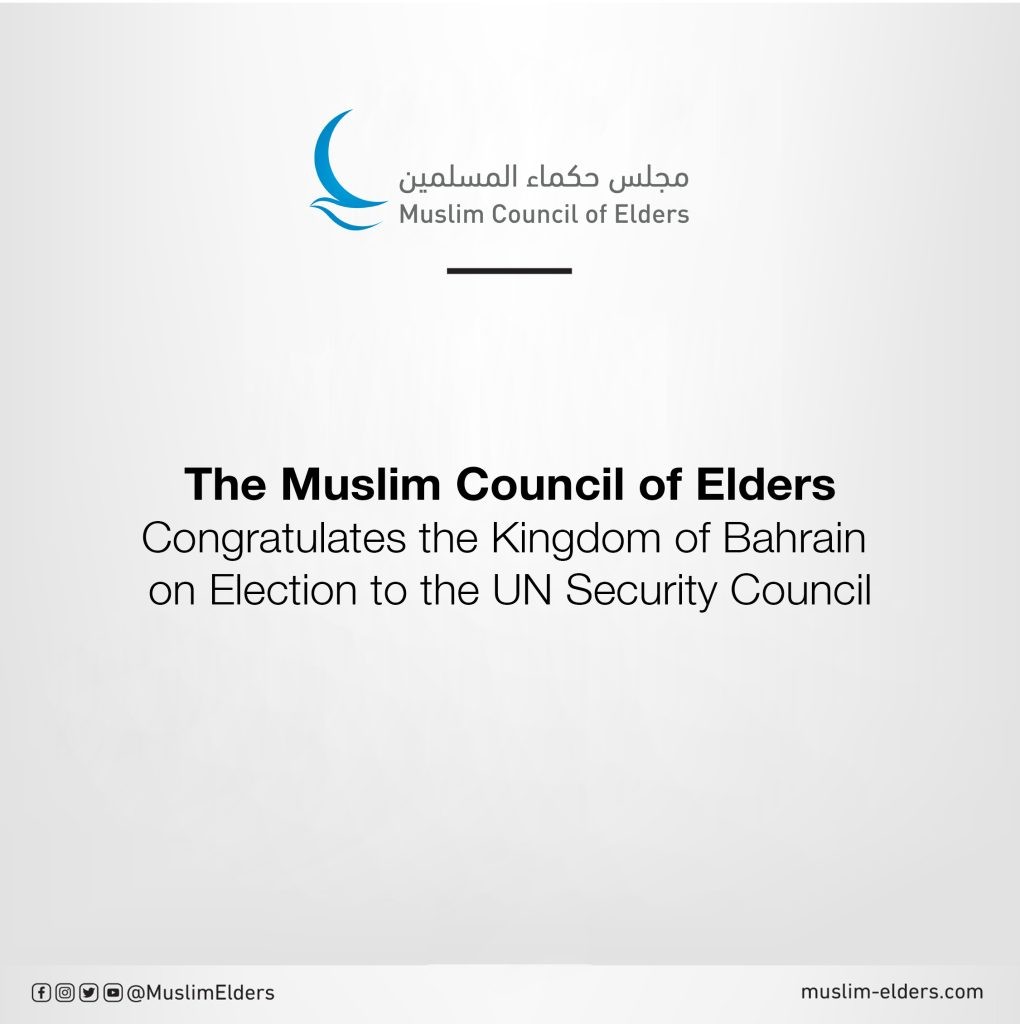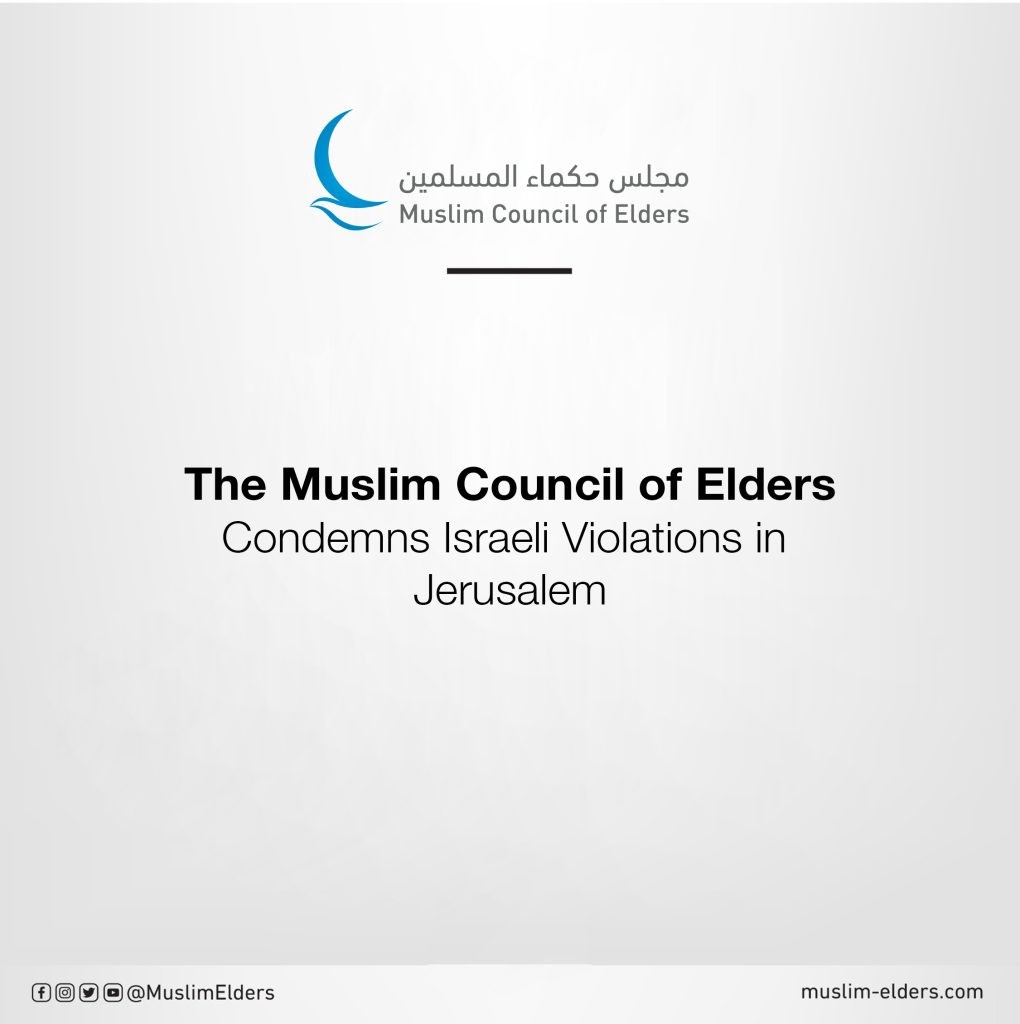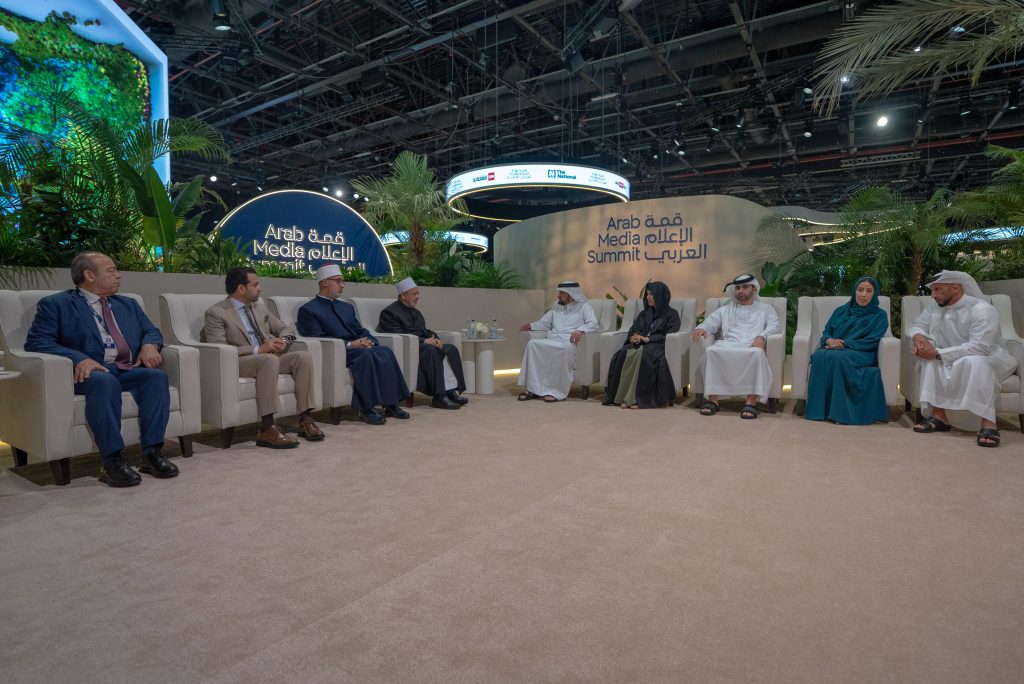For the fourth consecutive year, the Muslim Council of Elders showcases its latest intellectual and cultural publications at a dedicated pavilion in the Jakarta Islamic Book Fair
The Muslim Council of Elders is taking part in the 23rd Jakarta Islamic Book Fair, held at the Jakarta Convention Center (JCC) from June 18 to 22, 2025. Marking its fourth consecutive year of participation, the Council is showcasing its work through a dedicated and prominent pavilion—one of the fair’s key attractions. This presence reflects the Council’s ongoing commitment to promoting a culture of peace and coexistence, advancing the principles of moderate Islam, and deepening its cultural footprint in Southeast Asia.
This year, the Council is presenting over 250 intellectual and cultural titles, including a selection of its latest 2025 releases by Al Hokama Publishing. The publications explore key issues such as peacebuilding, coexistence, and identity pluralism, with notable titles including: “Religion and the Nations of Greater Asia: Managing Religious and Ethnic Pluralism in China and India,” “Peace in Africa: Studies and Perspectives on Enhancing Stability and Development,” “The Making of International Peace: Drawing from Shared Contexts,” and “International Peace: Shared Values and Institutional Concepts,” authored by a group of researchers from the Al Hokama Center for Peace Research.
The pavilion further highlights over 30 works by His Eminence Prof. Dr. Ahmed Al-Tayeb, Grand Imam of Al-Azhar and Chairman of the Muslim Council of Elders. These works aim to present the true spirit of Islam and its rich intellectual and philosophical heritage. Titles include “Al-Qawl al-Tayyib,” “From My Old Notebooks,” “Ahl al-Sunnah wa al-Jama’ah,” “Insights into the Thought of Imam Al-Ash‘ari,” and “A Discussion on Peace.” Additionally, the book “Islam and the West: An Approach to the Causes of Confrontation and a Survey of the Conditions for Intercultural Exchange” by Dr. Mohamed Elbenayadi, “The Quran’s Discourse on Humanity” by Sheikh Ali Mohamed Hassan Al-Amari, “Imam al-Haramayn and His Influence on the Development of the Ash’ari School” by Dr. Ali Mohamed Jaber, and “Islamic Principles on Family Planning” by Abu Al-Wafa Al-Maraghi will also be featured.
The Council is also showcasing a selection of significant works by its members and prominent intellectuals. Among the highlights are: “Love in the Holy Qur’an” by His Royal Highness Prince Ghazi bin Muhammad, “The Grand Imam and the Pope: A Thorny Path – A Testimony on the Birth of the Document on Human Fraternity” by Judge Mohamed Abdelsalam, Secretary-General of the Muslim Council of Elders, “Principles of Understanding and Mutual Comprehension in Thought and Language” by Dr. Mostafa Benhamza, “Muslims at a Crossroads” by Dr. Mahmoud Hamdi Zakzouk, “Dimensions of Mutual Knowledge in Morocco and Al-Andalus” by Dr. Jaafar bin Al-Hajj Al-Salami, and “Studies in Thematic Parallels in Qur’anic Narratives: A Comparative and Analytical Approach” by Dr. Abdelghani Al-Rajihi.
As part of its commitment to expanding its cultural impact and reaching Indonesian audiences, the Council is offering a collection of publications translated into Bahasa Indonesia. Notable titles include: “Al Qawl Al-Tayeb,” “From My Old Notebooks,” “Reflections on the Thought of Imam Al-Ash’ari,” Ahl al-Sunnah wal-Jama‘ah: Who Are We?,” “The Essentials of Islam,” “and Social Ethics in Islam” by Sheikh Abu Al-Wafa Al-Maraghi, as well as “Correcting Misconceptions” by Sheikh Muhammad Abu Zahra. In addition, the Council is presenting several works translated from other languages, such as: “The Voice of Change,” “Shared Global Values and the Making of International Peace,” “Confronting Islamophobia in Europe,” “Islam and Good Governance” by Prof. Muqtedar Khan, and “Islam, the West, and Tolerance: Conceiving Coexistence” by Dr. Aaron Tyler.
The Council’s participation in this year’s fair extends to a series of high-level intellectual seminars featuring a distinguished group of scholars and thinkers. Among the highlights is a seminar titled “Promoting Dialogue Among the Components of the Muslim Ummah,” featuring Dr. Muhammad Zainul Majdi, member of the Council’s Executive Committee; Prof. Dr. Syafiq Mughni, Vice President of the Muhammadiyah; and Ms. Alissa Wahid, Coordinator of the Gusdurian Network Indonesia (GNI). Another seminar, titled “The Importance of Strengthening Digital Sovereignty and the Ethics of Artificial Intelligence in the Indonesian Context,” will feature Prof. Dr. Muhammad Quraish Shihab, member of the Muslim Council of Elders and former Indonesian Minister of Religious Affairs; Prof. Dr. Pratikno, Minister of Human Development and Culture; and Dr. Rezzy Eko Caraka, researcher at BRIN and visiting professor in Taiwan.
In its commitment to engaging diverse segments of society, the Council is also hosting a variety of interactive workshops at its pavilion. These include “AI and Coexistence for Children” and a screenwriting workshop on “Human Fraternity and Coexistence,” designed for young creators and content developers.
The Council’s pavilion has been awarded “Best Pavilion” at the Jakarta Islamic Book Fair for three consecutive years—an acknowledgment of the richness of its content, the diversity of its programs, and the high level of visitor engagement. The Muslim Council of Elders warmly invites the public to visit its pavilion in Halls A & B at the Jakarta Convention Center to explore its latest publications and take part in its diverse activities, all of which reflect its mission to promote peace, mutual understanding, and dialogue among nations and cultures.


